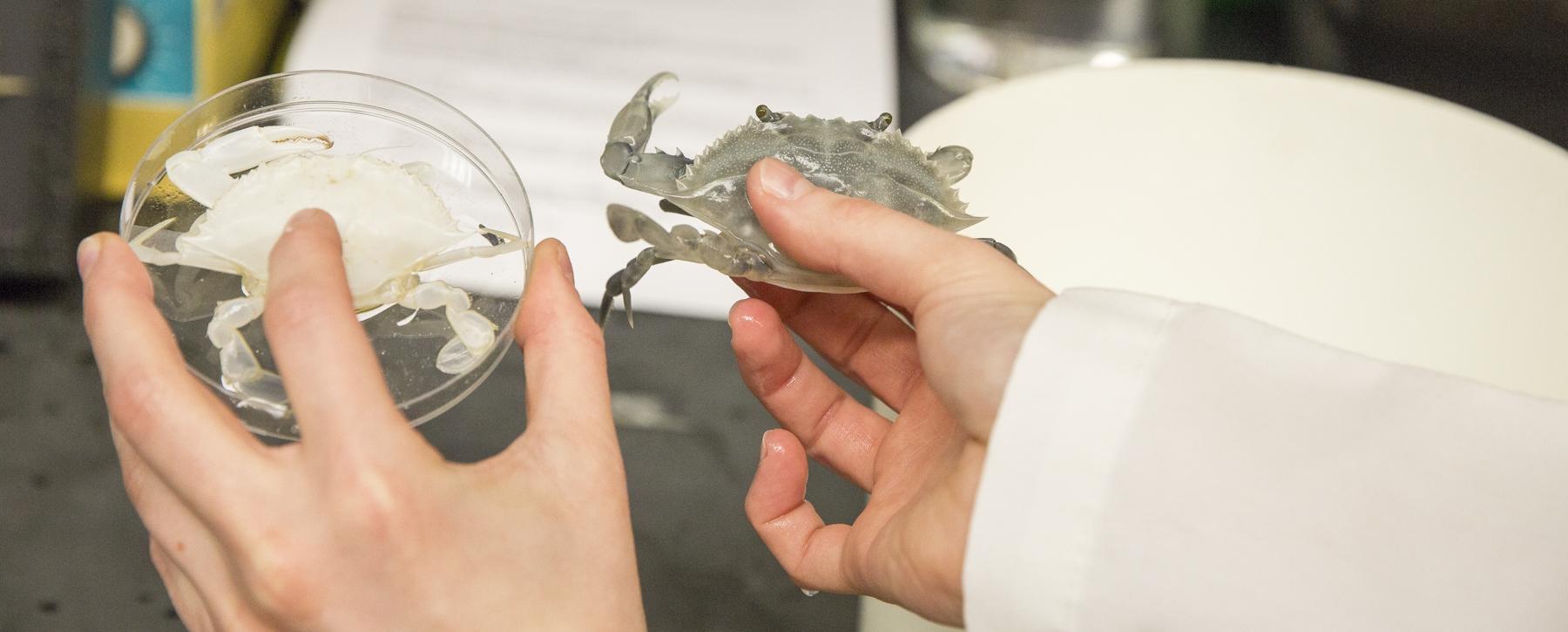
Environment, Animal & Human Health
|
|
|
|
|
IMET is a leader in research of diseases (protozoan, bacterial, and viral) of economically and ecologically important marine and estuarine species, including Chesapeake Bay species such as the blue crab and the eastern oyster. Research spans innate immune recognition mediated by protein-carbohydrate interactions to acquired immunity in model and non-model systems, including in shark immunity. An important area for application of this research is in vaccine development, including gene-based vaccine antigens and archaea-derived vaccine delivery technology.
IMET contributes to human health through work in established and emerging model systems for the study of infectious disease, including Influenza A, pneumococcal pneumonia, and sepsis, and the role of Helicobacter pylori in gastric inflammation and cancer. Research in aquatic and microbial model systems contributes to understanding of vertebrate musculoskeletal development, eye lens development and retinal regeneration and the glycobiology of neoplastic transformation and progression.
Research on drug discovery at IMET aims to find beneficial products from microbes associated with marine invertebrates and high value lipids and secondary products from algae. Novel lectins are explored as reagents for histochemistry, analytical and preparative glycoprotein studies, cell separation, and other applications.
Human health can be impacted by algal toxins in positive and negative ways. IMET scientists study the genes, biosynthesis and mechanisms of action of toxins from dinoflagellates and other algae, which may have beneficial uses as drugs. The development of low-cost bio-assays and in situ methods to reduce cyanobacteria blooms can help reduce the negative health impacts of harmful algal blooms.
Researchers working in this area:
 Dr. Tsvetan Bachvaroff UMCES-IMET |
 Dr. Shiladitya DasSarma UMB-IMET |
 Dr. Helen Dooley UMB-IMET |
 Dr. Shaojun "Jim" Du UMB-IMET |
 Dr. Rosemary Jagus UMCES-IMET |
 Dr. Russell Hill UMCES-IMET |
 Dr. Allen Place UMCES-IMET |
 Dr. Frank Robb UMB-IMET |
 Dr. Eric Schott UMCES-IMET |
 Dr. Harold Schreier UMBC-IMET |
 Dr. Allison Tracy UMBC-IMET |
 Dr. Vikram Vakharia UMBC-IMET |
 Dr. Gerardo Vasta UMB-IMET |
 Dr. Ten-Tsao Wong UMBC-IMET |
 Dr. Yonathan Zohar UMBC-IMET |